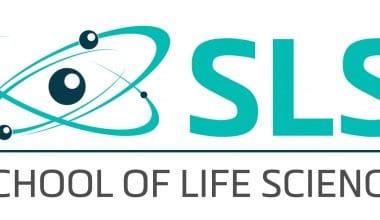As a student, you might have heard about the capstone project, and a question that might pop into your mind is, “what is a capstone project?”.
Capstone projects, while they vary from university to university, are usually more “experiential” projects where students take what they’ve learned throughout their graduate program and apply it to examine a specific idea.
The reason it’s called a capstone is that it is the crowning project that marks the completion of all requirements to graduate with a Masters’s Degree.
However, to understand why a capstone is required in many programs, you need to know what it is. This article will cover what a capstone project is about and its importance.
Here is a review of what this post looks like:
Table of contents
- What Is A Capstone Project?
- Why Is It Called Capstone?
- Why Do Schools Assign Capstone Projects?
- What Are The Types Of Capstone Projects?
- What Is The Importance Of A Capstone Project?
- What Are The Goals For A Capstone Project?
- Capstone Proposals
- What Are The Steps Students Need To Take To Do A Capstone Project?
- What Are The Requirements For A Capstone Project?
- Which Programs Usually Require Capstone Projects?
- How Long Does It Take To Complete A Capstone Project?
- Do Online Students Complete Capstones?
- What Are The Benefits Of A Capstone Project?
- Capstone Project In Graduate Schools FAQs
- Conclusion
- References
- Recommendations
What Is A Capstone Project?
A capstone project also called a (capstone experience, culminating project, or senior exhibition) is an assignment that has many aspects that serve as a culminating academic and intellectual experience for students, typically during their final year of high school or middle school or in the end of an academic program.
It is similar to a thesis but usually results not only in a report but in a product, a performance or in giving a presentation.
RELATED POST: How Can I Become a Dermatologist? Salary, Cost, and Programs
Why Is It Called Capstone?
The philosophy behind it is quite simple and interesting as well. A capstone, in architectural terms, is the final stone laid right on top of a concrete structure to symbolize the completion of the said structure. Apply that to academics, and the capstone project becomes the final stone in the path of your education, signifying its successful end.
Why Do Schools Assign Capstone Projects?
Although the projects do showcase your educational accomplishments, they are more about demonstrating that you know how to learn. They are intended to encourage students to use the critical thinking skills acquired through their degree programs to solve problems.
Schools also want to see their graduates develop and use public speaking skills. Writing proficiency plays a great part in the assignments because the presentation must usually be accompanied by a portfolio that details the steps you took to reach your conclusion or to create your product.
READ ALSO: 10 Best Schools for Food Science in the World
What Are The Types Of Capstone Projects?
Capstone projects are of many types, and your school has the authority to decide which type of project you are assigned to. Some of the common types of capstone projects include the following:
- Program evaluations
- Focus groups
- Surveys
- Case studies
- Outcome-based evaluation
There can be other kinds, depending on your school’s preference. However, program evaluations and case studies are the commonest forms.
What Is The Importance Of A Capstone Project?
The main purpose of a capstone project is career advancement. This project has been designed to prepare you for future challenges in your career. In fact, even the topics you are assigned (or even the ones you choose for yourself) are meant to help you analyze real-life problems to find suitable solutions, thereby adding to your wisdom, knowledge, and problem-solving skills.
A capstone project can help to sharpen your research-making skills. Since there are ton of research work when it comes to composing a capstone project, a student is required to search for something authentic, and this leads to them being able to improve their research-making skills.
It can also offer an excellent platform for you. This means it can strengthen your basic knowledge in a specific course and offer alternatives for which academic profession to pursue once you complete your studies.
It can help students discover their interests and pursue the academic field accordingly.
What Are The Goals For A Capstone Project?
There are several goals for a capstone, and they often include the following:
- Defining an information problem or opportunity.
- Decide what techniques are required to master this information problem or opportunity.
- Include all aspects of the information problem – using people, technology, and information.
- Make a positive difference in the community, whether it is a business, school, library, hospital, or other organization.
- Choose a topic or focus area the students are enthusiastic about.
Capstone Proposals
Before a student can actually take a capstone course to begin implementing their capstone project, many students would need to develop a comprehensive proposal that a professor or instructor will review.
This proposal usually contains an introduction, theories, hypotheses, scholarly literature review, research methods, proposal alternatives, and any other issues relevant to the project proposal.
Each capstone requirement is unique to the student’s program, so it is best that a student continuously consults with a program advisor to make sure their capstone proposal meets the requirements.
Also, check this: 10 Free Online Beauty Courses with Certificates 2024
What Are The Steps Students Need To Take To Do A Capstone Project?
Irrespective of the form of the capstone project you have been assigned, you will have to take certain steps to complete your project. Here, we will discuss the important steps you need to take:
Step 1: Pick A Topic
You must pick a topic, whether you have been asked to write an assignment or anything else. But be wise when choosing one. Experts suggest that you do not choose topics that involve the analysis of statistical data as well as complex concepts and ideas that are too hard to fathom for the readers.
Instead, you should choose topics that focus on real-life situations and that involve the application of a specific principle that you learned during your course.
Step 2: Submit Your Proposal
Once you have chosen a topic, you must develop a proposal and submit it to your supervisor or advisor. Yes, much like the thesis, you also have an advisor for your capstone project.
Your proposal should be nearly 40 pages long, and it should adequately introduce the topic you have chosen. You will also have to state the pre-existing theories on your topic and your own hypothesis in this proposal. The literature review and methodology sections will also be a part of it.
Step 3: Start Working On It
If your proposal gets accepted, you should start working on your capstone project immediately. You may have to conduct more research than you already have.
Start writing immediately because finishing a capstone project will take a long time. This is because these projects can be listed as courses in the academic catalogue of your school academic catalogue, and you will have to devote a semester or a year to it.
SEE ALSO: How can I become a Massage therapist in 2024? Schools, Cost Programs & Salary
What Are The Requirements For A Capstone Project?
Before an individual can complete a capstone project, one must take a series of undergraduate or graduate courses that will give one the theoretical and skills-based knowledge necessary to formulate an idea for a capstone proposal.
Classes required before taking a capstone course usually centre around research statistics, ethics, program theory, leadership, and other relevant courses based on the master’s program.
Also, many programs have a GPA requirement before completing a capstone course.
Which Programs Usually Require Capstone Projects?
It is very common for master’s programs in social services, public administration, mass communications, and liberal arts to require graduate students to complete a capstone project.
This is because these programs are usually geared towards working professionals and capstone projects give students the ability to take knowledge and theory they have learned and apply in a real-world setting.
How Long Does It Take To Complete A Capstone Project?
This normally will vary from program to program and can be as few as 10 weeks or as many as two semesters depending on the program’s requirements.
It is common for graduate programs to require a capstone project course that lasts one semester.
Do Online Students Complete Capstones?
If the program requires one, they do. Online degrees usually follow the same curriculum as traditional degrees, but the material is normally presented differently.
That means if capstones are required in traditional programs, they will also be required in online degree paths. Although they may, however, be completed in a different format.
READ ALSO: 21 Best Nail Tech Schools in 2024 | Requirements, Admission
What Are The Benefits Of A Capstone Project?
Capstone projects require in-depth research on the chosen topic. They can be frustrating and seem like an unnecessary requirement, but they are beneficial for the student to develop skills.
Students learn to become more inquisitive, develop research plans, and independently carry out an entire project.
Some of the benefits of capstone projects include:
- The opportunity to explore a topic of your interest.
- The chance to practically apply your skills and knowledge.
- You will get research experience in case you want to pursue more advanced degrees.
- You will increase your employability through research experience.
- If you are required to work in a group, you will also improve your teamwork skills and better manage people and deadlines.
Capstone Project In Graduate Schools FAQs
A capstone project also called a (capstone experience, culminating project, or senior exhibition) is an assignment that has many aspects that serve as a culminating academic and intellectual experience for students, typically during their final year of high school or middle school or in the end of an academic program.
This normally will vary from program to program and can be as few as 10 weeks or as many as two semesters depending on the program’s requirements. It is common for graduate programs to require a capstone project course that lasts one semester.
It is very common for master’s programs in social services, public administration, mass communications, and liberal arts to require graduate students to complete a capstone project. This is because these programs are usually geared towards working professionals. Capstone projects allow students to take knowledge and theory they have learned and applied in a real-world setting.
Conclusion
A capstone project or capstone experience involves identifying an existing problem in a real-world setting and applying learned skills and methods to develop a solution that addresses the problem directly.
A capstone project can also expose you to the latest trends in your field as you will have to carry out extensive research to come up with the solution to the problem you intend to address in your paper.
References
- gradschoolhub-What is a capstone project in graduate school
- myassignmenthelp-the a to z of capstone projects for students





